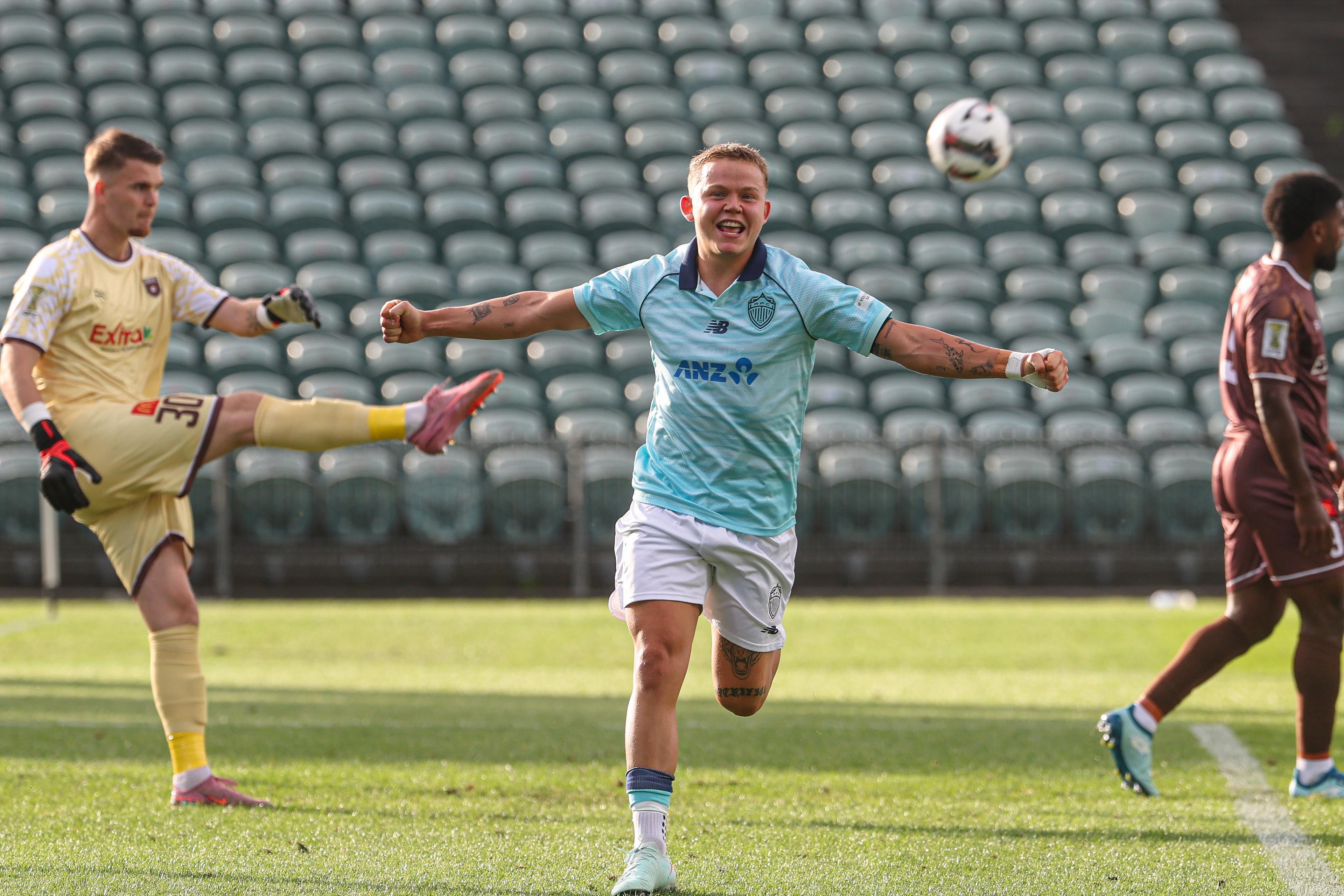

Perfomers at the Cook Islands Language week opening prayer service on Sunday. Photo/Facebook/CIDANZ
Photo/Facebook/CIDANZ
Cook Islands Language Week is 'for everybody' - Pacific Peoples Minister
Advocates say the Cook Islands language must be celebrated, but the challenges can't be overlooked.



Moana Pasifika rally behind Miracle Fai’ilagi as captain ahead of Drua showdown

Fiji and Tahiti seize tonnes of cocaine in coordinated Pacific drug busts - officials




Moana Pasifika rally behind Miracle Fai’ilagi as captain ahead of Drua showdown

Fiji and Tahiti seize tonnes of cocaine in coordinated Pacific drug busts - officials

It's Cook Islands Language Week and the event is highlighting the budding revival efforts in New Zealand but also the dwindling speaking rates in the Cook Islands.
Cook Islands Māori are the third largest Pacific community in New Zealand, and Minister for Pacific Peoples Barbara Edmonds says it’s encouraging to see people across the country starting to really get into the celebrations.
“We share really deep whakapapa ties with Cook Islands, we share a very common language with Te Reo Māori, and there are 80,000 Cook Island Māori who call Aotearoa home.
“So across the week we’ll be celebrating those ties, we’ll be strengthening them and I'm just really looking forward to our Cook Island community really showcasing what makes them special amongst our islands.”
This year's theme is: ‘Ātuitui’ia au ki te au peu o tōku kāinga Ipukarea’: Connect me to the traditions and culture of my homeland. Speaking to Levi Matautia-Morgan on 531pi's Pacific Mornings, Edmonds says the week’s theme applies to many.
“Doesn't matter whether you’re a Kūki 'Āirani speaker, a reo speaker or you’re a Sāmoan speaker, that'll have a separate meaning for everybody.
“For me as a Sāmoan, I reflect on the migration journey of all our Pacific parents as they came through, especially in the late 70s and 80s, and again another reminder for me to try again to learn my own language.”
PMN Cook Islands producer and host Tauraki Rongo will start off the week promoting the language throughout the South Island.
“In Invercargill we’re helping set up the language classes down there, there’s a lot of New Zealand-born and youth wanting to learn the language and culture."
In collaboration Cook Islands Development Agency New Zealand (CIDANZ), Rongo says they try to keep the theme very similar each year so they can focus on engagement.
“Making the youth interested in knowing where they come from, their roots, that’s the main idea, otherwise I believe it’d be pointless teaching the language if there’s no connection to the land.”
Language dwindles in Cook Islands
Meanwhile, there are fears the Cook Islands language is in a state of emergency. The Ministry for Pacific Peoples says less than one in ten of Cook Islands diaspora can speak the language.
In the Pacific, Cook Islands Māori and various dialects appear on the UNESCO Oceania endangered languages list, ranging from vulnerable to severely endangered.
Rongo says with easy access to New Zealand and workers coming from overseas, English has become the language of choice.
“If you go to Rarotonga, the language is not there. They’re losing it. We really need to work with those in charge of building the language at home and in education.
“There’s no point in us building the language here when there’s no language at home, and I think it’s in a state of emergency.”
He says colonisation has contributed to the language decline, and hopes this can be reversed.
“Our parents were punished if they spoke the language, and by our time, we had to say the Lord’s Prayer in English and sing God Save the Queen every morning.”
Technology has pros and cons
Rongo says some encouraging developments include artists who use the language in their music like Rex Atirai, Tzar who features some of the Northern group dialects, and Samson Squad.
“They have the right person behind them, their Dad, who's been in the culture for all these years.
“It's something that the youth can relate to, and the pronunciation and the use of the language is awesome.”
As far as digital tools, Rongo says technology is still catching up as there are different formats to use when the language is written or spoken out loud.
“Our language is hard to put on Google, because when it’s translated, it’s back to front.
“So when I say ‘I’m going to the shop - tē ‘aere nei au ki kō i te toa’, when you translate it back it’s ‘going I am to the shop’, you can’t do a literal translation.”
Mark your calendar
Celebrations continue throughout this week, including the Cook Islands Constitution Day on Friday, Rongo encourages everyone to make an effort and to keep it fun.
“Just a little bit, day by day, sing along with the songs, and if you have a sentence and use one Māori word, that's enough, have a go.
“To the parents, don't tell your kids off when they make a mistake. Laugh with them, talk with them, enjoy the language, and don't make it become a problem at home.”
Click here for a list of events.